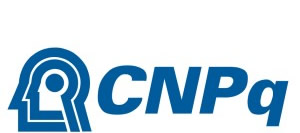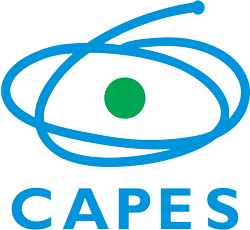XXXIX ENCONTRO NACIONAL DE FÍSICA DA MATÉRIA CONDENSADA
1.01 ATOMIC AND MOLECULAR PHYSICS
1.01.1 Electronic Structure and Dynamics of Atoms, Molecules and Clusters
1.01.2 Large Molecular Systems: Clusters, Proteins, Enzymes, Quantum Dots, DNA fragments, and Others
1.01.3 Exotic Atoms and Molecules
1.01.4 Atomic and Molecular Collisions
1.01.5 Photophysics and Spectroscopy of Atomic and Molecular Systems
1.01.6 Cold Atoms and Bose-Einstein Condensates
1.01.7 Solvation Effects
1.02 OPTICS AND PHOTONICS
1.02.1 Quantum Optics
1.02.2 Optics and Atomic Physics
1.02.3 Optics and Biosciences
1.02.4 Optical Materials and Nonlinear Optics
1.02.5 Lasers and Photonics
1.02.6 Nanophotonics, Nanooptics and Plasmonics
1.02.7 Biophotonics and applications
1.03 QUANTUM INFORMATION
1.03.1 Quantum Cryptography, Quantum Communication, and Quantum Measurement
1.03.2 Quantum Entanglement
1.03.3 Quantum Computing, Quantum Algorithms, and Quantum Simulation
1.03.4 Quantum Error Correction and Quantum Control
1.03.5 Open Quantum Systems and Decoherence
1.03.6 Physical Implementations of Qubits
1.03.7 Foundations of Quantum Theory and Quantum Thermodynamics
1.04 SOFT MATTER
1.04.1 Polymers: Structure and Dynamics
1.04.2 Polymers: Electronic and Optical Properties
1.04.3 Liquid Crystals and Complex Fluids
1.04.4 Organic Electronics and Photonics
1.04.5 Biological Fluids, Micellar Structures and Membranes
1.05 BIOLOGICAL PHYSICS
1.05.1 Physics of Biological Macromolecules: Dynamics, Function and Interactions
1.05.2 Physics of Membranes: Biological and Synthetic
1.05.3 Biological Networks
1.05.4 Biomechanics
1.05.5 Physics of Multi-cellular Processes
1.05.6 Dynamics of Biological Systems
1.05.7 Biological Materials: Synthesis, Characterization and Applications
1.05.8 Instrumentation for Biological Physics
1.05.9 New Methods in Biological Physics
1.06 MEDICAL PHYSICS
1.06.1 Radiation Therapy
1.06.2 Radiodiagnostics
1.06.3 Imaging Physics
1.06.4 Radiation Dosimetry
1.06.5 Nuclear Medicine
1.06.6 Optical Physics in Medicine
1.06.7 Radiation Biology
1.06.8 Radiological Protection
1.06.9 Instrumentation for Medical Physics
1.07 INSULATORS AND DIELECTRICS
1.07.1 Growth, Structure, Properties and Defects
1.07.2 Oxides
1.07.3 Minerals and Geological Materials
1.07.4 Topological Insulators
1.07.5 Dielectrics
1.08 METALS AND METALLIC ALLOYS
1.08.1 Structural, Mechanical and Thermodynamic Properties
1.08.2 Electronic, Transport and Optical Properties
1.09 NON-CRYSTALLINE SYSTEMS
1.09.1 Glasses and Amorphous Materials
1.09.2 Quasicrystals
1.09.3 Natural Materials
1.09.4 Biomaterials
1.10 MAGNETISM
1.10.1 Dynamical Magnetization
1.10.2 Spintronics
1.10.3 Nano and Molecular Magnetism
1.10.4 Magnetism in Thin Films and Surfaces
1.10.5 Theory and Simulation in Magnetism
1.10.6 Magnetic Semiconductors
1.10.7 Magnetic Oxides
1.10.8 Magnetic Devices and Applications
1.10.9 Magnetocaloric Effect
1.11 NANOMATERIALS
1.11.1 Graphene: Monolayer and Multilayer
1.11.2 2D Materials Beyond Graphene and Van der Waals Heterostructures
1.11.3 Nanotubes
1.11.4 Nanowires
1.11.5 Nanoparticles
1.11.6 Quantum Dots
1.12 SEMICONDUCTORS
1.12.1 Quantum Wells, Quantum Wires and Quantum Dots
1.12.2 Spin-Dependent Phenomena
1.12.3 Bulk and Alloy Semiconductors
1.12.4 Defects and Doping
1.12.5 Superlattices and Heterostructures
1.12.6 Semiconductor Growth and Surfaces
1.12.7 Transport Properties
1.12.8 Optical Properties
1.12.9 Devices and Applications
1.12.10 Quantum Hall Effect
1.13 STRONGLY CORRELATED SYSTEMS
1.13.1 Metal-Insulator and Other Correlated Phase Transitions
1.13.2 Heavy Fermions
1.13.3 Non-Fermi Liquids
1.13.4 Complex Oxides
1.13.5 Correlated Electron Magnetism
1.13.6 Quantum Fluids and Quantum Solids
1.14 SUPERCONDUCTIVITY
1.14.1 Materials: Growth, Structure and Characterization
1.14.2 Theory, Models and Mechanisms of Superconductivity
1.14.3 Novel Superconductors: Fe-Based, MgB2, Organic, etc.
1.14.4 Dynamics and Pinning of Vortex Matter
1.14.5 Superconductivity at the Meso and Nanoscales
1.14.6 Superconducting Devices and Applications
1.15 SURFACES, INTERFACES AND THIN FILMS
1.15.1 Growth, Structure and Morphology
1.15.2 Surface Reactions and Catalysis
1.15.3 Electronic and Lattice Properties
1.15.4 Applied Surface Science
1.16 THEORY AND SIMULATION
1.16.1 Electronic Structure Methods
1.16.2 Classical Monte-Carlo and Molecular Dynamics
1.16.3 Quantum Many-Body Systems and Methods
1.16.4 Fluid and Polymer Simulations
1.17 APPLICATIONS AND DEVICES
1.17.1 Energy Storage and Conversion
1.17.2 Photovoltaics
1.17.3 Thermoelectrics
1.17.4 Biofuels
1.17.5 Solid-State Lighting
1.17.6 Printed Electronics
1.17.7 Electroacoustics and Piezoelectric Applications and Devices
1.17.8 Applications of Composite and Hybrid Materials
1.18 INSTRUMENTATION
1.18.1 Detectors, Sensors, & Transducers
1.18.2 Spectroscopic Techniques
1.18.3 Scattering & Diffraction
1.18.4 Microscopic and Scanning Probe Techniques
1.18.5 Signal Processing & Analysis
1.18.6 Thermal & IR Instrumentation
1.18.7 Other Instrumentation and Measurement Science
1.19 STATISTICAL PHYSICS
1.19.1 Complex systems
1.19.2 Critical phenomena and phase transitions
1.19.3 Disordered and glassy systems
1.19.4 Growth phenomena
1.19.5 Long-range interactions
1.19.6 Population dynamics
1.19.7 Thermodynamics and thermostatistics
1.19.8 Transport, flows and diffusion
1.19.9 Nonlinear dynamics
XXXIX REUNIÃO DE TRABALHO SOBRE FÍSICA NUCLEAR NO BRASIL
2.AI Aplicações e Instrumentação
2.ER Estrutura e Reações
2.HF Hadrons e Interações Fundamentais
XXXVII ENCONTRO NACIONAL DE FÍSICA DE PARTÍCULAS E CAMPOS
3.CGR Cosmologia e Gravitação
3.FEX Física Experimental de Altas Energias
3.FPE Fenomenologia das Partículas Elementares
3.TQC Teoria de Campos
XIII ENCONTRO BRASILEIRO DE FÍSICA DOS PLASMAS
4.ATP Aplicações Tecnológicas de Plasmas
4.FBP Fenômenos Básicos em Plasmas
4.FTC Fusão Termonuclear Controlada
4.PEA Plasmas Espaciais e Astrofísicos
XVI ENCONTRO DE PESQUISA EM ENSINO DE FÍSICA
5.01 Ensino/Aprendizagem/Avaliação em Física
5.02 Formação e prática profissional do professor de Física
5.03 Filosofia, História e Sociologia da Ciência e o ensino de Física
5.04 Física e Comunicação em práticas educativas formais, informais e não-formais
5.05 Tecnologias da informação e comunicação e o ensino de Física
5.06 Didática, Currículo e inovação educacional no ensino de Física
5.07 Linguagem e Cognição no ensino de Física
5.08 Ciências, Tecnologia, Sociedade e Ambiente e o ensino de Física
5.09 Políticas Públicas em Educação e o ensino de Física
5.10 Questões teórico-metodológicas e novas demandas na pesquisa em ensino de Física


